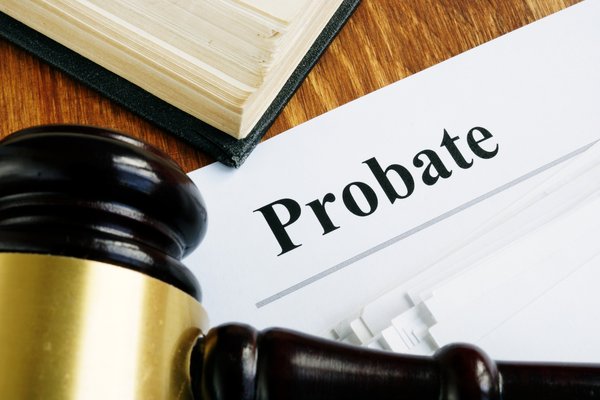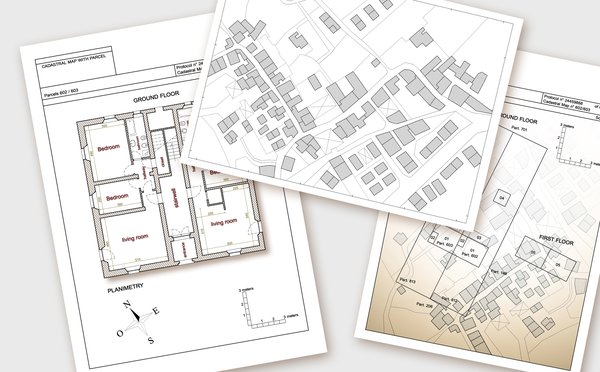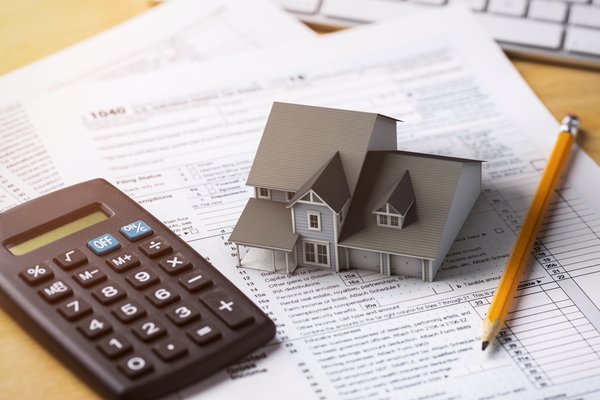How Much Do Real Estate Investors Really Make?
The average real estate investor salary sits between $70,000 and $124,000, according to most sources. But to be fair, salaries can vary greatly depending on the type of investing you're doing, how many deals you take on per year, the time you devote to it, and a whole slew of other factors.
Are you considering a career in real estate investing? Want to make sure you'll make the cash you need to stay afloat? Here's what you can expect to earn.

Average real estate investor salaries
There are tons of ways to invest in real estate. You can buy single-family properties and become a landlord, you can fix-and-flip properties as you see on HGTV, or you can even host short-term rentals on platforms like Airbnb and VRBO.
Each method has its own pros and cons, as well as earning potential. And while salaries for investors can diverge widely even within these categories, here's a quick look at the average annual salary within these niches:
- Rental property investing: $27,500 to $121,000
- Home flipping: $62,900 per flip, minus rehab costs
- Short-term rentals: $35,120 to $61,097
- Wholesaling: $21,500 to $98,500
At the end of the day, real estate is a local game. As such, an investor's earnings vary greatly by location, too. According to ZipRecruiter, this is the average salary for a real estate investor in each of the 50 states. North Carolina claims the lowest investor salaries, while investors in New York and Massachusetts make the most.
| State | Average Salary |
|---|---|
| Alabama | $108,490 |
| Alaska | $123,581 |
| Arizona | $115,155 |
| Arkansas | $109,217 |
| California | $121,843 |
| Colorado | $116,437 |
| Connecticut | $124,755 |
| Delaware | $116,593 |
| Florida | $104,704 |
| Georgia | $111,089 |
| Hawaii | $129,328 |
| Idaho | $113,912 |
| Illinois | $108,623 |
| Indiana | $114,417 |
| Iowa | $112,197 |
| Kansas | $114,658 |
| Kentucky | $118,860 |
| Louisiana | $113,364 |
| Maine | $113,827 |
| Maryland | $124,794 |
| Massachusetts | $134,657 |
| Michigan | $109,298 |
| Minnesota | $116,892 |
| Mississippi | $107,392 |
| Missouri | $107,140 |
| Montana | $116,352 |
| Nebraska | $122,912 |
| Nevada | $122,611 |
| New Hampshire | $131,717 |
| New Jersey | $118,323 |
| New Mexico | $109,576 |
| New York | $135,942 |
| North Carolina | $99,700 |
| North Dakota | $122,147 |
| Ohio | $115,671 |
| Oklahoma | $114,236 |
| Oregon | $116,609 |
| Pennsylvania | $117,608 |
| Rhode Island | $123,741 |
| South Carolina | $116,999 |
| South Dakota | $118,580 |
| Tennessee | $116,511 |
| Texas | $109,814 |
| Utah | $114,607 |
| Vermont | $123,068 |
| Virginia | $121,301 |
| Washington | $133,717 |
| West Virginia | $118,179 |
| Wisconsin | $115,395 |
| Wyoming | $122,041 |
How to make more money as a real estate investor
As you can see, your estimated salary as a real estate investor can vary greatly. Fortunately, investors have a lot of control in their careers. That means if you're not making what you want or just want to scale up, there are plenty of steps you can take to do so.
Here are just a few ways you can improve your earnings as an investor:
Diversify
If you've only flipped properties or rented out single-family homes, expand into other forms of real estate investing. Add a few vacation homes to the mix, try a multifamily property, or give wholesaling a whirl. You'll increase your earning potential -- plus, you could find something you're really good at or just enjoy more.
Do more deals
This one's pretty simple: The more deals you do, the more you'll earn. If you're only doing five flips per year, think about adding another two. If you have two rental properties, consider a third (maybe even a duplex or triplex to really increase those earnings). Just keep in mind that the bigger your portfolio grows, the more work you'll be required to do. So be prepared and set aside the time (or team) to do it.
Get a mentor
If your real estate career isn't quite panning out, then look to someone who's come before you. Many successful real estate investors offer coaching and mentoring programs, and they can help guide you on growing your career and your earnings. Attending networking events is a great way to find a potential mentor. You can even ask your favorite real estate agent for some recommendations in the area.
Improve at least one skill
Read, take classes, and make it a point to improve at least one of your basic investing skills. If you improve your negotiation skills, for example, it might mean lower costs and higher returns on your next flip. If you increase your knowledge of carpentry, it could reduce rehab costs down the line. Even small, incremental improvements in your capabilities can make a big difference on your bottom line -- and your real estate business as a whole.
Change your location
The data above spells it out: Real estate investing returns vary widely depending on where you're active. If your properties aren't delivering the return on investment (ROI) you've been hoping for, then branch out location-wise. Try a real estate investment in a new city or even a new state. Just be sure to do your research and identify the real estate market with the highest potential possible before diving in. You'll also want a plan in place for how you'll manage the property (or just the deal) from far away.
Increase your rents and prices
Obviously, if you charge more rent or price your flips higher, you'll make more cash. You'll just need to be careful here and make sure the price hike is justified. If it's not, you might find yourself with a vacant property -- and that can hurt your earnings (and cash flow) more than anything.
The bottom line
Real estate investor salaries are what you make of them. Your earnings directly correlate with the work you put in and the deals you strike. Not making what you hoped? Up the ante and try a new type of investment, try a new housing market, or improve your negotiating skills. In real estate, there's always a way to increase those earnings and build the wealth you want.
Don't forget: Not all real estate investing is active. If you're looking to earn passive income from real estate, look into investing in a real estate investment trust (REIT) or real estate stocks. Crowdfunded deals can also be a great way to get in on up-and-coming investments and developments.



























